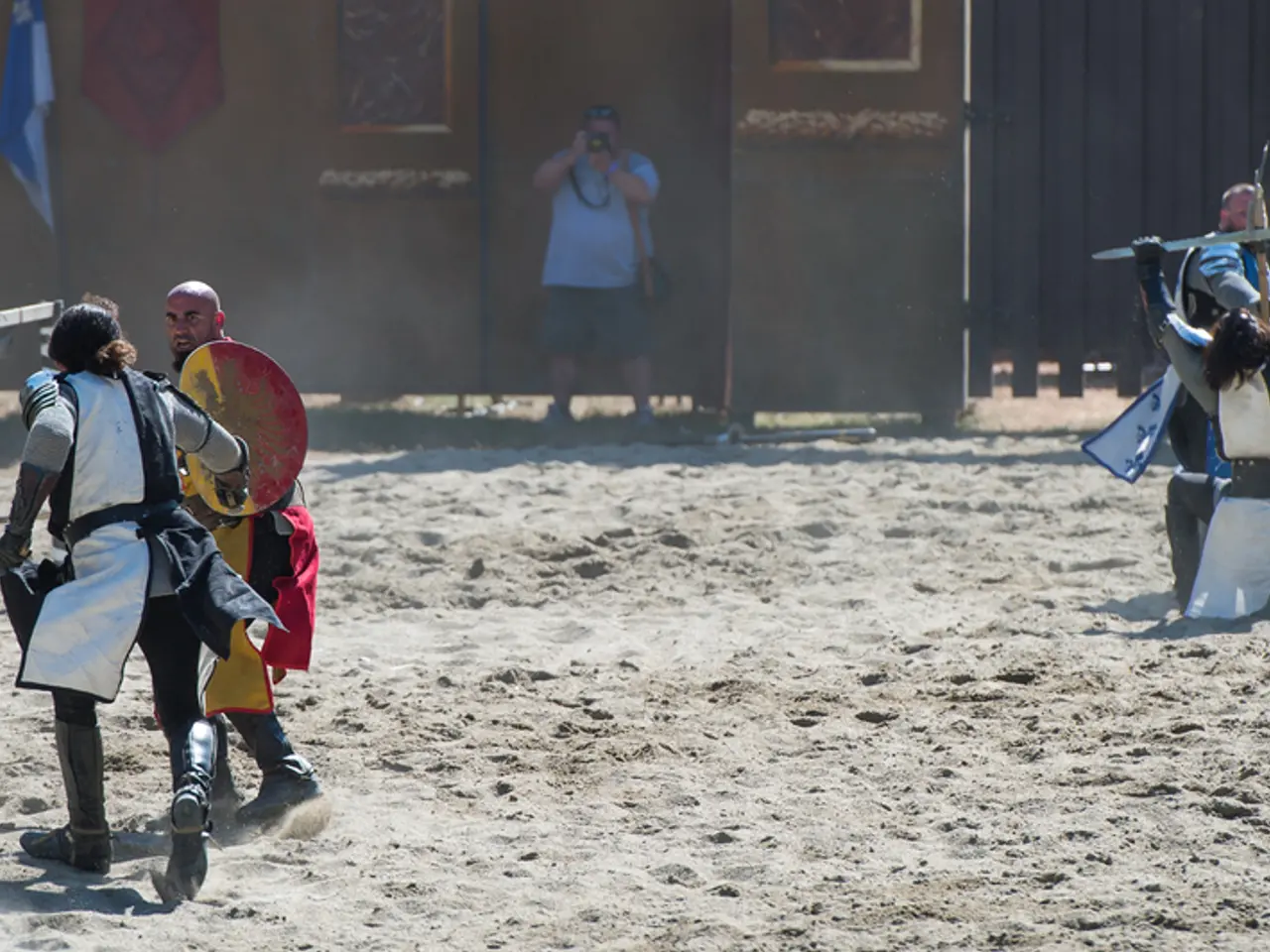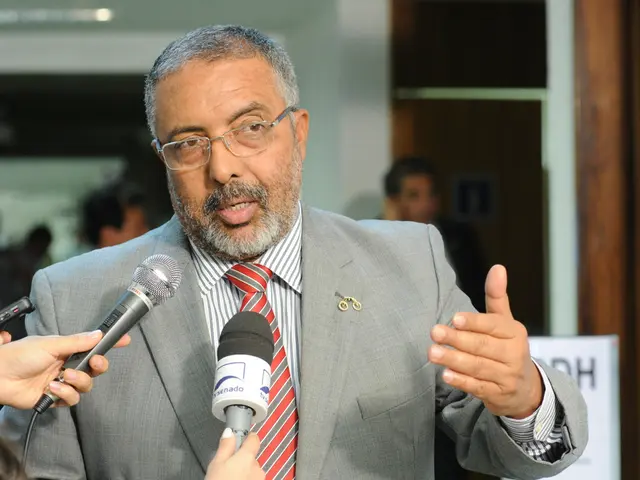Zubeidi acknowledges the ineffectiveness of violence and cultural approach in his resistance against Israel
Former Palestinian Militant Leader Questions Path to Statehood
Zakaria Zubeidi, a former leader of the Fatah-affiliated Al Aqsa Martyrs Brigade in Jenin, has admitted that decades of violence and militancy have failed to bring about a Palestinian state. In a recent interview with The New York Times, Zubeidi expressed his belief that there is no peaceful solution and no military solution to the ongoing conflict with Israel.
Zubeidi rose to prominence during a wave of suicide bombings and shootings in the early 2000s that claimed the lives of approximately 1,000 Israelis. He was convicted of multiple violent offenses and accused of ordering deadly attacks on Israeli civilians, and is viewed as a dangerous terrorist by many in Israel.
In 2007, Zubeidi accepted an Israeli amnesty in exchange for laying down arms and co-founding the Freedom Theater in Jenin with foreign activists. However, his past statements suggest his opposition to Israel remains unchanged. He has begun a Ph.D. in "Israel studies" at Birzeit University to better understand the complexities of the conflict.
Reflecting on his life of militancy and activism, Zubeidi has called for a reconsideration of the tools used in the Palestinian struggle. He believes that both violent and non-violent strategies have failed in achieving a Palestinian state, and that Israel is too strong to be defeated with violence.
Zubeidi's jailbreak in 2021 resulted in harsher conditions for all security prisoners, and he was recaptured within days. Despite his admission, Zubeidi continues to reject Israel's legitimacy. Bella Avraham, who lost her husband in one of the attacks allegedly ordered by Zubeidi, expressed her expectation that the Israeli state would continue to hunt him down.
Despite this bleak assessment, Zubeidi is pursuing a more reflective, academic, and cultural approach to the conflict. He insists that his cultural work is not a renunciation of violence, rather a form of intellectual and cultural accompaniment to the overall Palestinian resistance. Zubeidi concedes that the intifada and the Palestinian Authority have failed in their approaches, and that Palestinians lack effective tools to uproot Israeli control, while Israelis have no intention of conceding territory.
In summary, Zakaria Zubeidi is currently skeptical about any immediate or traditional path to Palestinian statehood, viewing both violence and peaceful political efforts as failed, and is instead exploring deeper understanding and alternative means such as cultural resistance and academic study to engage with the conflict.
[1] The New York Times, "A Former Palestinian Militant Seeks a New Path: Intellectual Engagement," link
[2] Haaretz, "Zakaria Zubeidi, the Palestinian Militant Who Became a Cultural Activist," link
[3] The Guardian, "Zakaria Zubeidi: the Palestinian militant who wants to study Israel," link
[4] Al Jazeera, "Zakaria Zubeidi: The Palestinian militant who wants to study Israel," link
Read also:
- Massive 8.8 earthquake hits off the coast of Russia's Kamchatka Peninsula, prompting Japan to issue a tsunami alert.
- Court petitions to reverse established decision on same-sex marriage legalization
- Proposed Standardization of Food Labeling Laws Among Member States by the Commission
- Current News: AfD Achieves 26% - Union Dips to Laschet's Level








